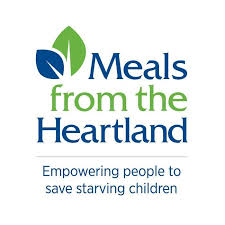Notebook: Some more takeaways from Balance Autism’s launch event

JOE GARDYASZ May 21, 2018 | 2:36 pm
3 min read time
628 wordsAll Latest News, Business Record Insider, Health and Wellness, The Insider Notebook
I reported Friday about the Altoona-based nonprofit’s rebranding from the Homestead. The organization has experienced phenomenal growth, an unfortunate reflection of the increased prevalence of autism in children in the United States — but a tremendous blessing for the children and adults with autism and the families that it’s helping. Remarkably, the rate of autism cases was about 1 in 1,000 children when the organization began as the Homestead 25 years ago. Now, experts say, about 1 in every 59 kids is autistic.
Following Balance Autism’s announcement, I spoke with the administrators for both the adult and children’s services of the organization to learn more about how Balance Autism’s growth will be directed over the next several years.
One of the biggest changes ahead is a new strategy for Balance Autism’s housing model for adults. Iowa’s privatization of the Medicaid system is the primary reason driving the move, says its adult services leader.
“Right now our adults live in homes they rent themselves,” said Scott Atwood, vice president of adult services with Balance Autism. However, with changes in how Medicaid reimbursements are paid, the nonprofit has determined that it’s more feasible to purchase houses that groups of four can live in so that staff services and support can be more centrally provided by Balance Autism. Owning the housing will also enable the nonprofit to better control the quality of the facilities, he said.
Balance Autism also launched an employment services component about 18 months ago and so far has connected six clients with employers, with support from two job coaches, Atwood said. “You’ll never find a more dedicated group of people who are task-oriented to do a job,” he said. “We want them to be not just in the community, but of the community.” The nonprofit is currently working with an additional 18 adults who are seeking positions such as restaurant table busing, grocery stock shelving and similar jobs.
A little over half of Balance Autism’s 400 clients served — about 240 — are children, which is the fastest-growing area for Balance Autism, said Evelyn Horton, vice president of children’s services. In just the past seven years, the organization has opened five additional children’s clinics in Iowa.
Part of its ability to expand services with more clinics in areas that need them will be the availability of board-certified behavior analysts. Currently, Balance Autism employs 25 behavior analysts — which is nearly one-quarter of the 107 board-certified professionals working in the state. The organization has 10 additional people who are taking the coursework to become certified behavior analysts, a process that takes about two years.
Horton said that Balance Autism is trying to identify people interested in training as behavior analysts who are already residents in high-need areas that aren’t being served, as opposed to trying to recruit trained individuals to move to more rural areas of the state.
In January 2019, a state licensing requirement will go into effect requiring behavior analysts to not only be board-certified, but also to be licensed by the state. “We see that as validation of the profession,” Horton said. “We think it’s a move in the right direction.”
Locally, Balance Autism expanded its Clive clinic this year, about doubling its size in a move to chip away at a lengthy waiting list for Greater Des Moines kids with autism, particularly for after-school programs, she said. “We’ll continue to look at specialized seminars — shorter-term programs that help kids to be more effective for the rest of their lives.”
Overall, Balance Autism is going to be looking for those areas that aren’t served by other organizations and fill those gaps, both inside and outside of Iowa, said CEO Steve Muller. “Our goal is to really meet the needs of the community.”










